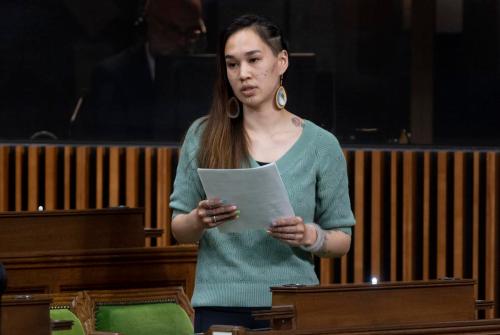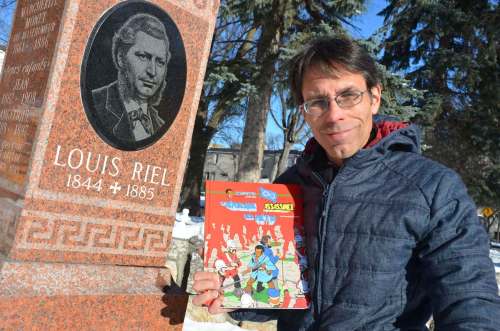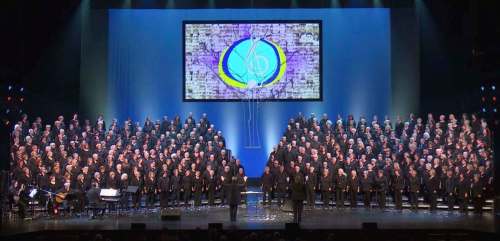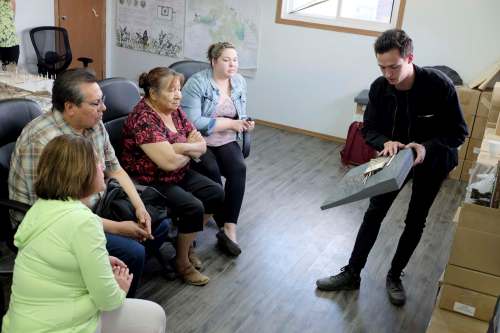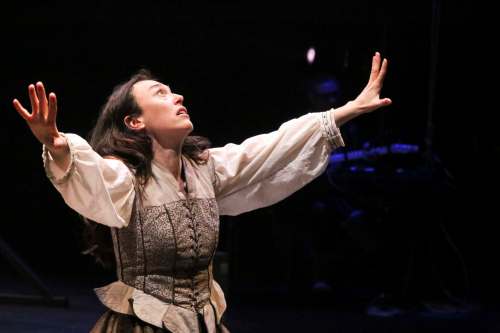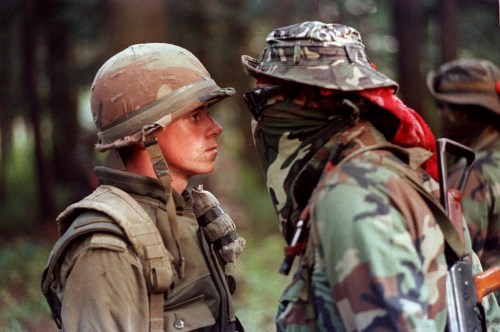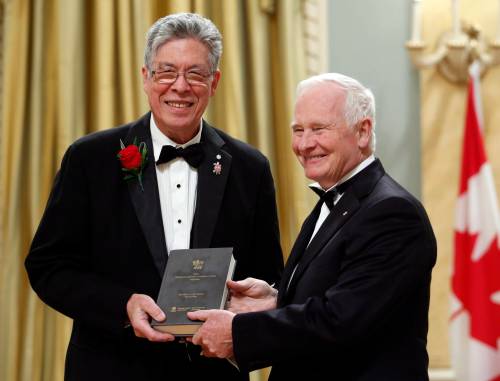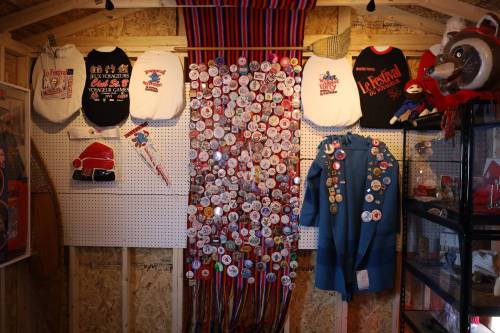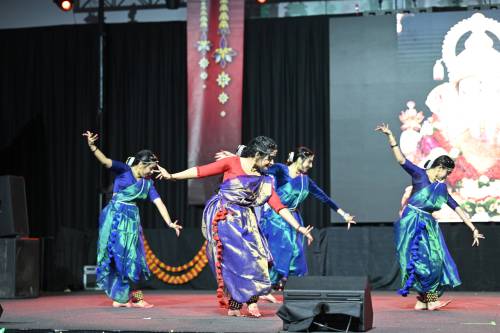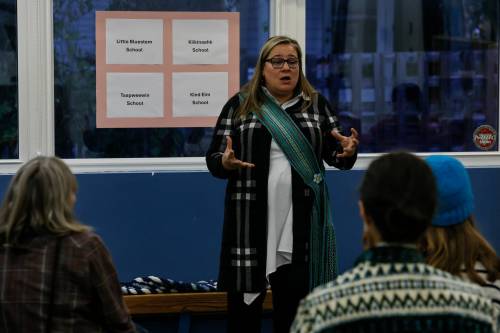Identity, Culture and Community
Please review each article prior to use: grade-level applicability and curricular alignment might not be obvious from the headline alone.
Oh, Canada! We have a racism problem
4 minute read Preview Wednesday, Oct. 15, 2025Canadian demographics impact cultural shifts
3 minute read Preview Saturday, May. 2, 2020Quand elle était enfant, Sophie Bissonnette n’avait pas d’intérêt évident pour un sport particulier. Ses parents ont donc décidé de l’inscrire au baseball, la passion de son père, Marc Bissonnette. Devenue elle-même amoureuse du sport, elle a joué pendant 15 ans dans des équipes masculines, puis féminines.
À ses débuts, le baseball était surtout l’occasion pour Sophie Bissonnette de passer du temps avec son père. “Il m’a toujours entraînée, et ça me plaisait beaucoup d’avoir ces moments avec lui. Dans ma première équipe, il y avait six filles et un garçon. Au fil des années, il y a eu de moins en moins de joueuses, jusqu’à ce que je sois la seule de mon équipe.”
Une situation qui a quelque peu préoccupé ses parents. “Ma mère était inquiète que je ne sois qu’avec des garçons. Mes parents m’ont proposé de passer au softball, pour être avec d’autres filles. Mais pour moi, c’est un sport complètement différent, et je ne voulais pas arrêter le baseball.”
Sophie n’a senti une différence que quand elle a commencé à jouer à haut niveau. “L’entraîneur me traitait comme les autres joueurs. Mais je n’étais pas la meilleure, et je sentais que je devais travailler plus fort, parce qu’il y avait des préjugés. Quand il y a 12 garçons et une fille sur le terrain, on remarque la fille et on prête plus attention à ce qu’elle fait. Mais j’avais ma place dans l’équipe, et j’étais prête à tout pour y rester.”
Chasser, pour avoir la conscience tranquille
4 minute read Preview Saturday, Dec. 2, 2017Riel, le lien entre les francos d’Amérique
5 minute read Preview Saturday, Nov. 18, 2017Traversant le Canada en 20 chansons
4 minute read Preview Saturday, Jul. 8, 2017‘Cette terre n’a fait aucun mal’
5 minute read Preview Saturday, May. 13, 2017Gripping drama Elle brings outdoor hardship to PTE's indoor stage
2 minute read Preview Friday, Feb. 24, 2017Oka at 25, lessons in reconciliation
5 minute read Preview Saturday, Jul. 11, 2015Uncovering Canada’s Arctic sea battle
4 minute read Preview Tuesday, Aug. 6, 2013The inconvenient truth: Thomas King’s admission he isn’t Cherokee hits hard
5 minute read Preview Monday, Nov. 24, 2025Métis federation sues Ottawa, Manitoba over Sixties Scoop
4 minute read Preview Monday, Nov. 24, 2025Investing for ourselves, and those downstream
5 minute read Preview Monday, Nov. 24, 2025Winnipeg’s synagogue and Edmonton’s mosque
5 minute read Saturday, Nov. 15, 2025In 1889, on the northwest corner of Common and King streets, Winnipeggers of many creeds gathered to lay the cornerstone of a new house of worship. It was the first synagogue in Manitoba, Shaarey Zedek, the Gates of Righteousness.
The Manitoba Free Press called the crowd “representative of all classes of citizens.” Members of the legislature and city council stood beside clergy from several churches. The Grand Lodge of Freemasons led the procession. The Infantry School Band played.
Philip Brown, chair of the building committee, rose to speak. To the wider city he appealed for “all lovers of religious liberty, regardless of class, creed or nationality.” To his own congregation he offered steadiness: be strong; your trials will be many, but patience and success will crown your efforts. Then his words turned outward again, toward the Masons and other neighbours who had come in friendship.
Quoting Psalm 133, he said, “Behold how good and how pleasant it is for brethren to dwell together in unity.” He praised the “worthy brotherhood whose motto is ‘Light, truth and charity,’” saying its principles were in harmony with Judaism’s own.
Merry and bright: more than 40,000 expected for annual Santa Claus Parade
3 minute read Preview Wednesday, Nov. 12, 2025Canadian sprinter Brendon Rodney helping with hurricane relief aid in Jamaica
3 minute read Preview Saturday, Nov. 8, 2025Unique Bunny jumps to 10 stores, with eye on future expansion
5 minute read Preview Monday, Nov. 3, 2025Counting on fans for countdown to 60th Festival du Voyageur
2 minute read Preview Thursday, Oct. 30, 2025Annual Diwali celebration puts spotlight on Hindu culture, customs and community
5 minute read Preview Saturday, Oct. 25, 2025Local Buddhist Temple teaches true meaning of karma; promotes positive living
4 minute read Preview Thursday, Oct. 23, 2025Being human — by choice
5 minute read Wednesday, Oct. 22, 2025I have found myself thinking about what draws me to a children’s television host who spent decades talking about how we live together in neighbourhoods.
Fred Rogers had this gentle way of speaking to children about the everyday challenges of being human: how to handle anger, disappointment, fear, and joy. But the more I consider his approach, the more I realize he wasn’t really teaching children how to behave, how to feel about themselves, how to understand the world around them. He was making something much more fundamental feel possible and worthwhile: he was making human decency aspirational.
Mr. Rogers knew that how we treat each other matters, not because it’s polite or proper, but because it’s how we create the kind of world we actually want to live in. His genius wasn’t in the specific lessons he taught, but in how he made kindness, patience, honesty, and gentleness feel like the most essential ways to be human.
I keep wondering if that’s what we’re missing sometimes. Not more rules about how to behave, but a sense that kindness and integrity are worth striving for.

